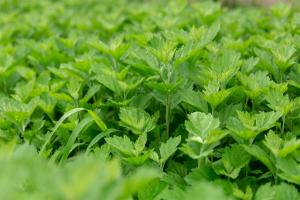Is Tap Water or Filtered Water Better for Plants?
When it comes to watering your plants, you may be wondering if tap water or filtered water is better. While both options can be used, there are some differences to consider that may affect the health of your plants. In this article, we will explore the pros and cons of both tap water and filtered water when it comes to plant growth.
TAP WATER
Tap water is the most convenient and easily accessible option for most people. It comes directly from your local water treatment plant and is regulated by environmental agencies to ensure that it meets safety standards. However, there are some factors to consider when it comes to using tap water for your plants.
One potential issue with tap water is that it may contain minerals and chemicals that can build up in the soil over time, leading to soil compaction and potentially hindering plant growth. Chlorine is another common ingredient found in tap water that can be harmful to plants if not properly filtered out. Even the temperature of the water can play a role in plant health, as excessively hot or cold water can shock plants and damage their roots.
FILTERED WATER
Filtered water, on the other hand, has been purified to remove impurities such as minerals and chemicals. There are a variety of filtration methods available, including activated carbon, reverse osmosis, and ion exchange, each with their own set of advantages and disadvantages.
One major advantage of filtered water is that it reduces the risk of harmful chemicals and minerals building up in the soil and affecting plant health. This can be especially important for plants that are sensitive to chemicals or for those that are grown in urban areas where water quality may be lower. Additionally, filtered water may be better for certain types of plants, such as those that prefer a slightly acidic pH level, as it can help to balance the pH of the soil.
WHICH IS BETTER?
When it comes down to it, there is no definitive answer to whether tap water or filtered water is better for plants. Both options have their pros and cons, and the choice ultimately depends on the specific needs of your plants and your personal preferences.
If you are concerned about the quality of your tap water, or have plants that are sensitive to chemicals and minerals, then filtered water may be the better option for you. However, if you have access to a clean and reliable source of tap water, then it may be just as effective for watering your plants.
Ultimately, the most important factor when it comes to watering your plants is consistency. Whether you use tap water or filtered water, it is important to establish a regular watering schedule and to avoid overwatering or underwatering your plants. By providing your plants with the proper amount of water and ensuring that the soil has adequate drainage, you can help to promote healthy growth and a thriving plant environment.
CONCLUSION
When it comes to watering plants, the choice between tap water and filtered water ultimately depends on a variety of factors. While both options can be effective, it is important to consider the quality of your tap water and the specific needs of your plants when making a decision. By choosing the right watering method and establishing a consistent watering routine, you can help to promote healthy growth and a thriving plant environment.

 how many times do yo...
how many times do yo... how many planted tre...
how many planted tre... how many pine trees ...
how many pine trees ... how many pecan trees...
how many pecan trees... how many plants comp...
how many plants comp... how many plants can ...
how many plants can ... how many plants and ...
how many plants and ... how many pepper plan...
how many pepper plan...
































